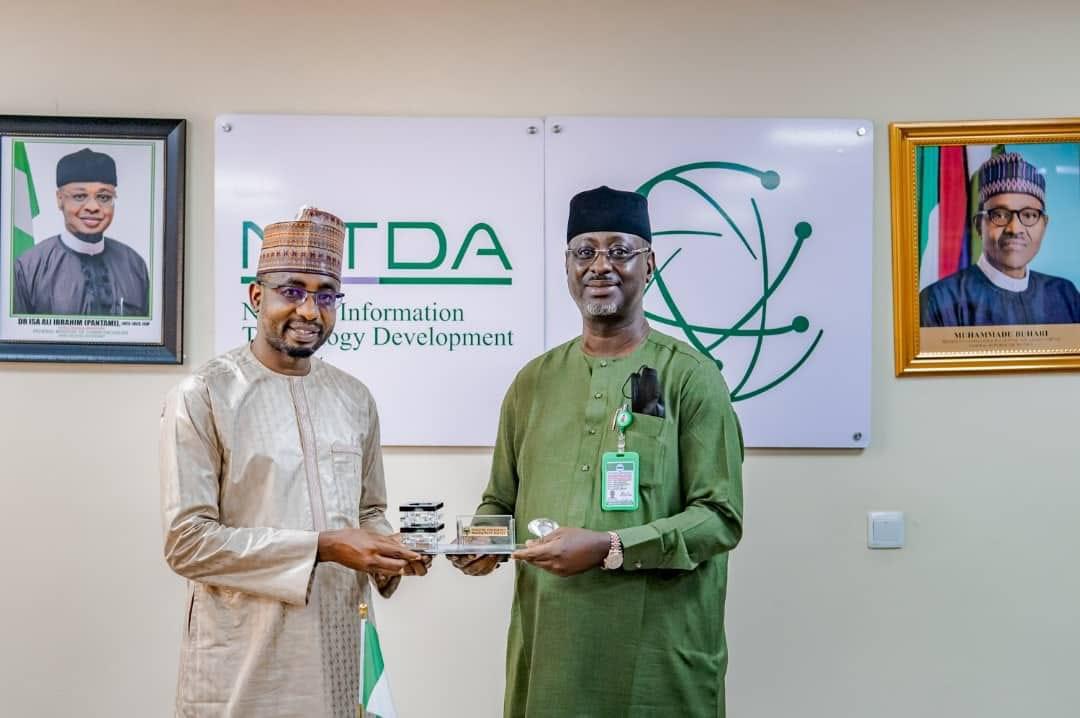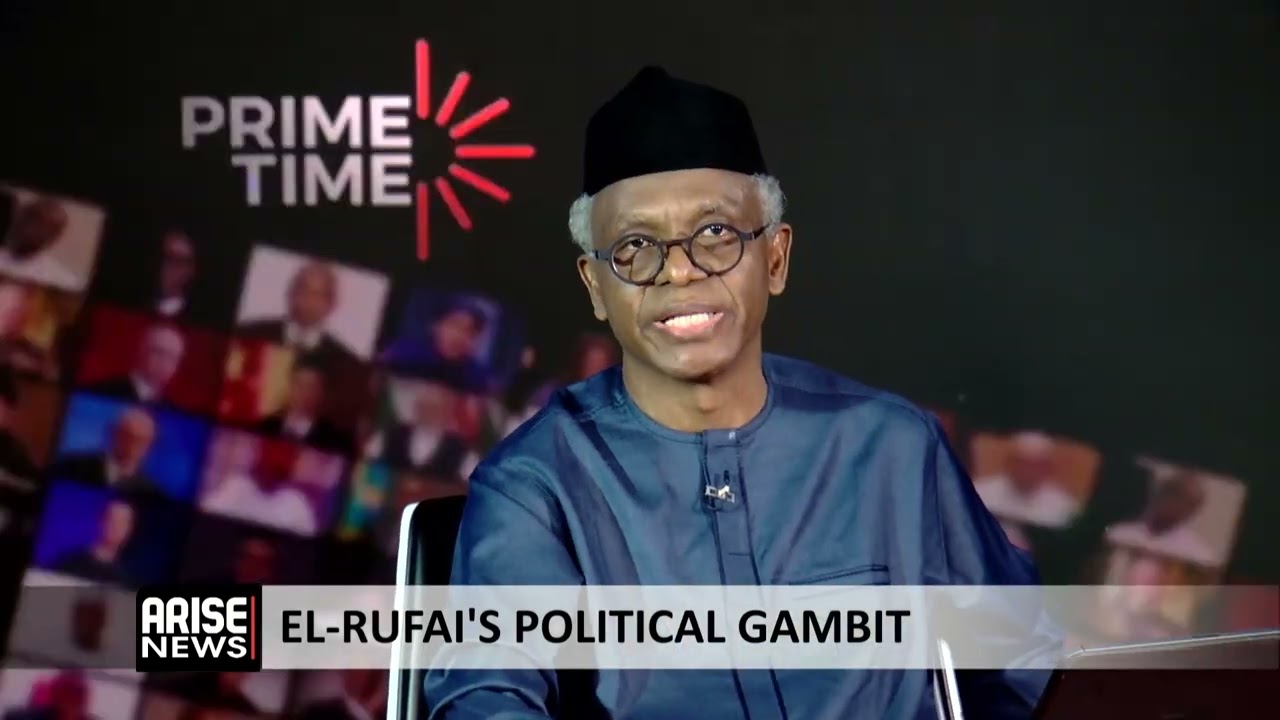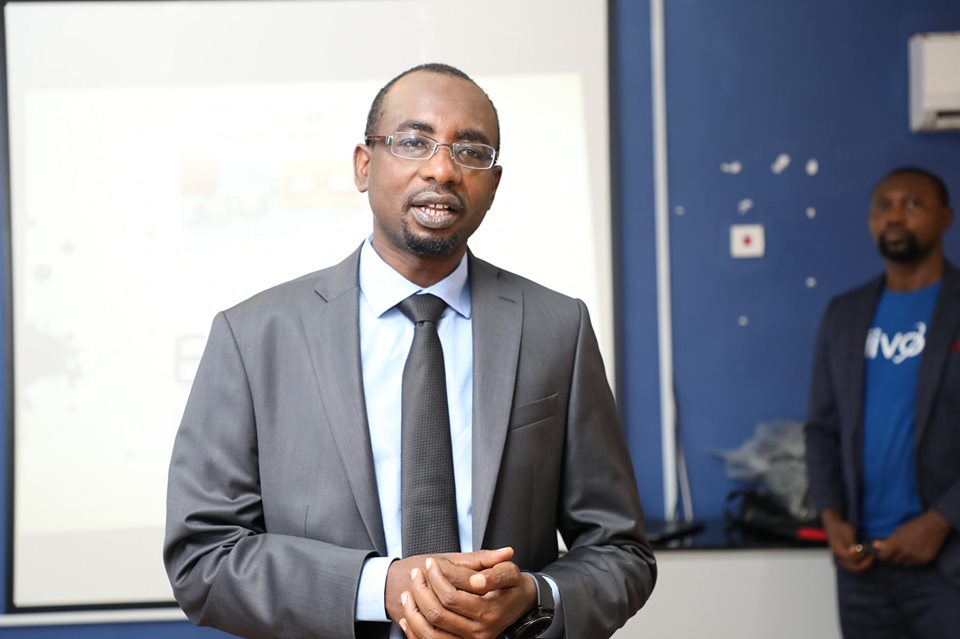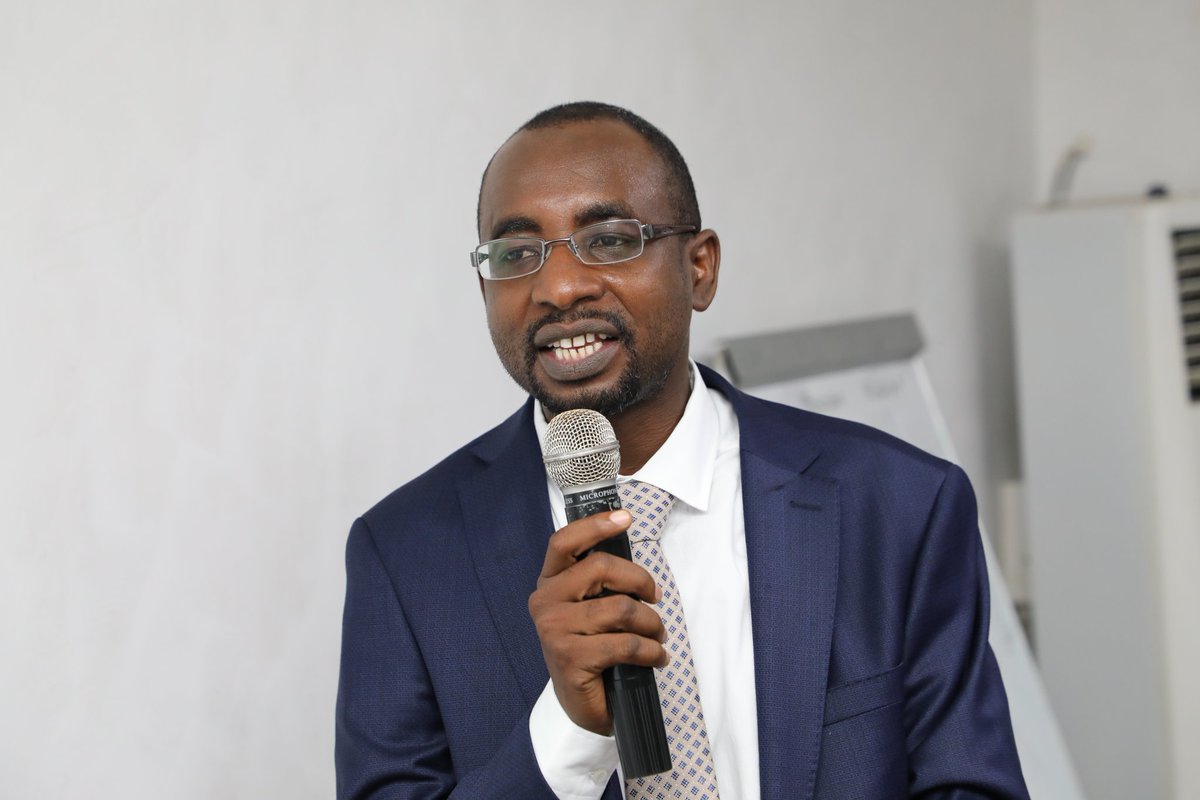General
NEMA DG Canvasses for Cost-Saving Methods

By Modupe Gbadeyanka
The Director-General of the National Emergency Management Agency (NEMA), Mr Mustapha Habib Ahmad, has stressed the need to adopt and sustain cost-saving methods.
He said this has become necessary following the economic downtown occasioned by the dreaded COVID-19 pandemic.
Mr Ahmad was recently at the office of his counterpart at the National Information Technology Development Agency (NITDA), Mr Kashifu Inuwa Abdullahi, to seek the agency’s collaboration on the use of ICT infrastructure and digital platform with a view to ensuring timely and lifesaving search and rescue operations.
He informed the NITDA boss that his organisation has the statutory mandate to seek collaborative support between the two agencies.
According to him, NEMA’s Act empowers it to manage human and natural disasters as well as support Nigerians in distress and mitigate the impact of such calamities, thereby building the culture of resilience on Nigerians.
He added that the country was faced with wide-ranging disasters such as insurgent activities ravaging the North East, communal conflicts, kidnappings and banditry, annual floods and most recently the COVID-19 global pandemic.
“Resources at the agency’s disposal no doubt have been overstretched and can barely meet the various disaster challenges across the nation,” the NEMA DG said.
Mr Ahmad stated that he approached NITDA and other stakeholders as part of efforts to address disaster risk management in Nigeria.
He said the agency can specifically assist NEMA’s zonal territorial and operational offices with real-time and sudden onset disaster communication, video conferencing, collection of damage and loss assessment data to enable timely lifesaving search and rescue operations as well as deployment of humanitarian support in the right time.
In his remarks, the NITDA DG promised to work with the agency to achieve its goals, noting that as the government apex IT regulatory body, it was saddled with the mandate of developing and regulating the use of ICT in Nigeria.
He further said NITDA is also required to deploy its expertise on virtually all aspects of human and operational endeavours that require the application of digital technology which NEMA is not an exception.
He described NEMA’s operations as one that requires the application of modern technology, adding that “to work effectively and efficiently you need ICT; technology can help you get insight and predict a disaster even before it happens.”
He said modern technology will in no small measure positions agencies like NEMA to always be on their toes ahead of any emerging situation easily, quickly, and conveniently as well as providing useful information that will make the agency take proactive measures.
The DG assured the agency of NITDA’s unalloyed commitment to incorporating it into its Digital Transformation Working Group (DTWG) to facilitate organizing capacity building for their personnel, to have a full grasp of the process, when where and how to deploy and apply the technology appropriately.
He also expressed NITDA’s readiness to key into providing technology guide on effective communication methods with their Zonal and State Offices for quick, easy and convenient information dissemination of locations for disaster.
Mr Abdullahi used the occasion to congratulate his counterpart at DG NEMA on his recent appointment, describing his task as onerous that requires sustained and strengthened partnerships for him to succeed in his duties due to its magnitude and impact on distressed Nigerians.
General
FG Sues El-Rufai Over Alleged Interception of NSA Ribadu’s Communications

By Adedapo Adesanya
The federal government has filed a three-count charge against former governor of Kaduna State, Mr Nasir El-Rufai, over an alleged interception of communications belonging to Nigeria’s National Security Adviser (NSA), Mr Nuhu Ribadu.
Last week, Mr El-Rufai claimed in an interview that he and other unnamed individuals listened to conversations from Mr Ribadu’s phone after it was tapped by a third party. While acknowledging that such interception is technically unlawful, he argued that illegal surveillance was not unusual.
However, the federal government, through the Department of State Services (DSS), filed charges against Mr El-Rufai at the Federal High Court in Abuja.
The government stated that Mr El-Rufai admitted that he and his cohorts allegedly intercepted the NSA’s phone conversations.
In count one, the accused was alleged to have disclosed on Arise TV’s Prime Time Programme in Abuja that he and his associates unlawfully intercepted the phone communications of the National Security Adviser, which is an offence contrary to and punishable under Section 12(1) of the Cybercrimes (Prohibition, Prevention, etc.) Amendment Act, 2024.
The second charge alleged that the accused knowingly maintained a relationship with an individual who unlawfully intercepted the phone communications of Mr Ribadu, without reporting such individual to the appropriate security agencies, an offence contrary to and punishable under Section 27(b) of the Cybercrimes (Prohibition, Prevention, etc.) Amendment Act, 2024.
In the last charge, Mr El Rufai, together with others presently at large, is also alleged to have, sometime in 2026 in Abuja within the jurisdiction of this Court, utilised technical equipment or systems in a manner that compromised public safety and national security, thereby instilling reasonable apprehension of insecurity among Nigerians through the unlawful interception of the phone communications of the National Security Adviser, Nuhu Ribadu. The charge further relies on his admission during the February 13 interview. These acts are alleged to constitute an offence contrary to and punishable under Section 131(2) of the Nigerian Communications Act 2003.
General
Nigerian Bottling Company Bridges Education, Employability Gap

By Modupe Gbadeyanka
The Nigerian Bottling Company (NBC) has reaffirmed its determination to bridge the gap between education and employability in the country by sustaining its flagship Youth Empowered (YE) programme.
This initiative provides hands-on learning, real-world insights, and access to career-shaping opportunities to young Nigerians.
The 2026 edition of the scheme commenced on February 2 at the University of Lagos (UNILAG), with participants mainly young people between the ages of 16 and 35.
A statement from the organisation said this year’s rollout will expand to more tertiary institutions, including the Federal University of Technology, Akure (FUTA). This follows a successful 2025 tour that reached seven cities across the country, including Makurdi, Jos, Benin, Kaduna, Asaba, Akure, and Port Harcourt.
Participants in the 2026 programme will receive training across key modules designed to support personal, professional, and business growth, including Business Life Skills, Adaptability and Resilience, Financial Literacy, Customer Service and Communication, Sales and Negotiation Skills, and Workplace Ethics.
The sessions will also feature breakout workshops on Business Planning, Project Management, and Time Management, alongside the Director’s Grant Pitch Competition, where participants can pitch their ideas for a chance to win business funding.
In addition to skills development, NBC’s People and Culture team will be present throughout the programme to identify outstanding talent for future opportunities within the organisation, further strengthening the connection between learning, employment, and long-term career growth.
One of the participants at the UNILAG training, Waliat Adedogun, who received a cash grant through the Director’s Grant Pitch Competition to support her small business, said: “Youth Empowered gave me more than training; it gave me clarity and confidence. Winning the grant means I can finally take my business idea from a dream into something real. I now feel prepared to build, grow, and create opportunities not just for myself, but for others too.”
Since its launch in 2017, the scheme has impacted more than 70,000 young Nigerians, equipping participants with practical skills, confidence, and exposure needed to succeed in today’s dynamic workplace and entrepreneurial landscape.
This year’s programme is being delivered in collaboration with Fate Foundation as the implementing partner, with funding support from The Coca-Cola HBC Foundation.
Last year, 10 beneficiaries were selected for six-month paid internships across NBC locations in Lagos, Ibadan, Asejire, and Challawa, gaining direct industry exposure.
Additionally, three outstanding participants received sponsorship for an all-expenses-paid intensive culinary training programme and were awarded N1 million each to support the launch of their businesses.
General
INEC Fixes February 20 for 2027 Presidential, NASS Elections

By Modupe Gbadeyanka
The 2027 presidential and National Assembly elections will take place on Saturday, February 20, the Independent National Electoral Commission (INEC) has revealed.
In a notice for the 2027 general polls issued on Friday, the electoral umpire also disclosed that the governorship and state assembly elections for next year would be on Saturday, March 6.
Speaking at a news briefing in Abuja today, the chairman of INEC, Mr Joash Amupitan, expressed the readiness of the commission to conduct the polls next year, which is 12 months away.
The timetable issued by the organisation for the polls comes when the federal parliament has yet to transmit the amended electoral bill to President Bola Tinubu for assent.
This week, the Senate passed the electoral bill, reducing the notice of elections from 360 days to 180 days, while the transmission of results was mandated with a proviso.
Recall that on February 4, INEC said it was ready to go ahead with preparations for the elections despite the delay in the passage of the amended electoral law of 2022.
-

 Feature/OPED6 years ago
Feature/OPED6 years agoDavos was Different this year
-
Travel/Tourism10 years ago
Lagos Seals Western Lodge Hotel In Ikorodu
-

 Showbiz3 years ago
Showbiz3 years agoEstranged Lover Releases Videos of Empress Njamah Bathing
-

 Banking8 years ago
Banking8 years agoSort Codes of GTBank Branches in Nigeria
-

 Economy3 years ago
Economy3 years agoSubsidy Removal: CNG at N130 Per Litre Cheaper Than Petrol—IPMAN
-

 Banking3 years ago
Banking3 years agoSort Codes of UBA Branches in Nigeria
-

 Banking3 years ago
Banking3 years agoFirst Bank Announces Planned Downtime
-

 Sports3 years ago
Sports3 years agoHighest Paid Nigerian Footballer – How Much Do Nigerian Footballers Earn













